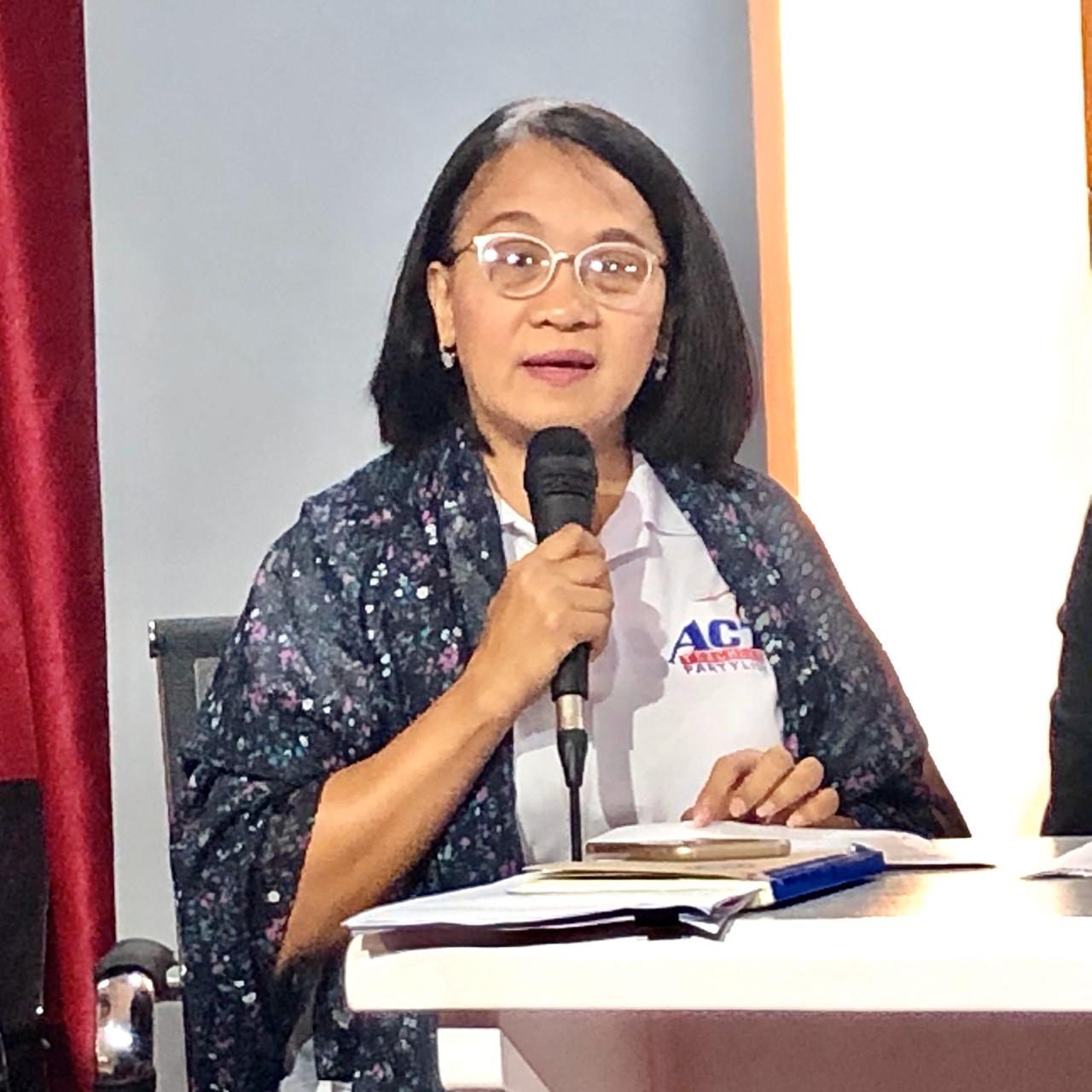‘Unprogrammed’ appropriations abused, hidden from Congress, public scrutiny – solon

(FILE) ACT Party-list Rep. France Castro during the weekly press briefing at the House of Representatives on Thursday, Nov 21, 2019. INQUIRER.net/Noy Morcoso
MANILA, Philippines — Malacañang had been abusing the “unprogrammed” appropriations (UA) category in the national budget with items being placed there to escape scrutiny from Congress and the public, House Deputy Minority Leader and ACT Teachers Partylist Representative France Castro said Thursday.
The teacher solon added that this had been the practice for years. Castro gave as an example the ‘SIPSP’ or “support for infrastructure projects and social programs” requests for P149.7 billion for 2023, which was introduced into the budget books during the time of President Gloria Macapagal Arroyo.
Insiders, however, claim that SIPSP programs will be funded through clinched loans after the General Appropriations Act (GAA) is passed, so they will not be scrutinized by Congress, Castro said.
“SIPSP is fattened by P136.5 B, or more than 1,000%, from the current year’s P13.19 B. We are interested why the Marcos administration proposed such an increase and considering that it also proposed huge cuts and measly increases in vital items for education, health, and other basic social services,” said the solon.
The Deputy Minority leader also said the “support for foreign assisted projects” which has a proposed budget of P380.6 billion, is another “unclear and undefined” portion of the 2023 National Expenditure Program (NEP) under the unprogrammed appropriations.
Article continues after this advertisement“We should also examine where the funds for this come from or does it just follow the same modus for the SIPSP,” the Deputy Minority leader added.
Article continues after this advertisementAdditionally, there were statements, particularly from House Deputy Speaker Ralph Recto, pointing out that the main goal in placing items under the UA is to hide them from Congress’ examination and the funds for them are already prepared.
READ: Recto spots P588-B ‘gray’ areas in proposed budget
Call for transparency
“As of now ang call ay mas maging transparent ang Malacañang o ang Department of Budget and Management (DBM) sa budget process” Castro said in a separate Viber statement sent to Inquirer.net.
(As of now, the call is to Malacañang and DBM to be more transparent in the budget process)
Castro also emphasized that they should submit all the details concerning the unprogrammed funds from 2016 to the present, together with the fund sourcing and allocations.
She said documents are expected to be submitted before the plenary debates on the DBCC. If not, then some budget items were intentionally put in the UA so that Congress and the public could not scrutinize it.
“It is really fishy though that they place so much standby funds supposedly with no sure sources of funding in unprogrammed appropriations but they get funding every year. It really appears that they are just trying to hide these funds from Congress and the public’s scrutiny.” she added.
Meanwhile, the DBM earlier maintained that there is no irregularity in its proposed P588.1 billion in unprogrammed funds under the 2023 national expenditure program (NEP).
DBM Secretary Amenah Pangandaman also said that the funds are “actually itemized” — which means it is available for scrutiny — and are usually tapped by the government during emergencies where infrastructure projects and social programs are needed. –-Lyka Farillon, Inquirer.net intern